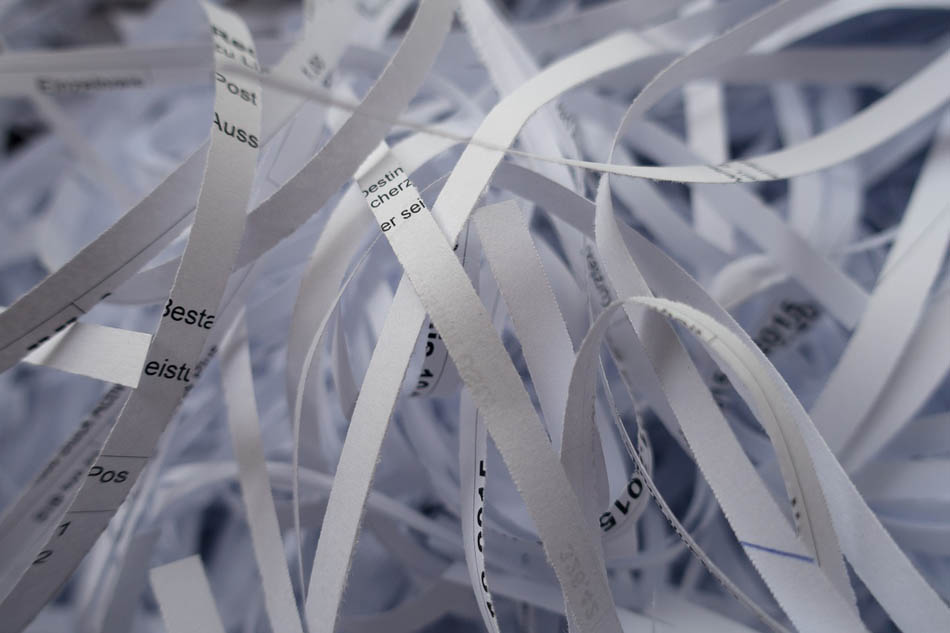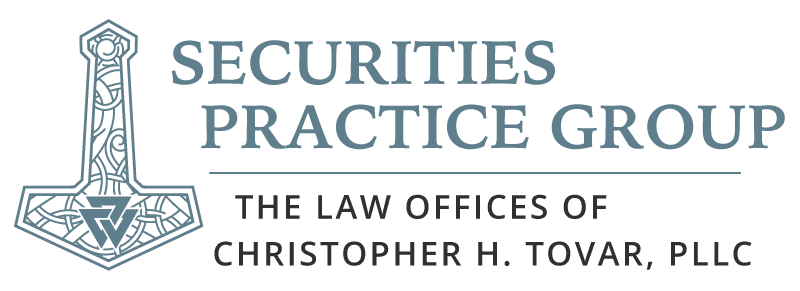
Have you just left a broker-dealer you couldn’t stand anymore? Did the firm just put a bunch of false and defamatory information that puts you and your practice in a false light on your U5? Are there customer complaints on your U5 that shouldn’t be there?
If so, you may have a hard time getting another job with a FINRA member broker-dealer until you clean up your U5. What goes on FINRA BrokerCheck stays there forever nowadays. If a potential employer or client Googles you, they will see this information right away and make a potentially uninformed decision about you.
What can you do about it? Where do you start?
You will likely have to file an arbitration through FINRA Dispute Resolution and seek expungement formally, as your old firm won’t voluntarily just change the information on your U5.
You need to speak with lawyers who know what they’re doing with the expungement process. Pro se expungement litigants rarely get it done on their own.

How does the expungement process work? You’ll have to seek this remedy under FINRA Rule 2080:
(a) Members or associated persons seeking to expunge information from the CRD system arising from disputes with customers must obtain an order from a court of competent jurisdiction directing such expungement or confirming an arbitration award containing expungement relief.
(b) Members or associated persons petitioning a court for expungement relief or seeking judicial confirmation of an arbitration award containing expungement relief must name FINRA as an additional party and serve FINRA with all appropriate documents unless this requirement is waived pursuant to subparagraph (1) or (2) below.
(1) Upon request, FINRA may waive the obligation to name FINRA as a party if FINRA determines that the expungement relief is based on affirmative judicial or arbitral findings that:
(A) the claim, allegation or information is factually impossible or clearly erroneous;
(B) the registered person was not involved in the alleged investment-related sales practice violation, forgery, theft, misappropriation or conversion of funds; or
(C) the claim, allegation or information is false.
(2) If the expungement relief is based on judicial or arbitral findings other than those described above, FINRA, in its sole discretion and under extraordinary circumstances, also may waive the obligation to name FINRA as a party if it determines that:
(A) the expungement relief and accompanying findings on which it is based are meritorious; and
(B) the expungement would have no material adverse effect on investor protection, the integrity of the CRD system or regulatory requirements.
(C) For purposes of this Rule, the terms “sales practice violation,” “investment-related,” and “involved” shall have the meanings set forth in the Uniform Application for Securities Industry Registration or Transfer (“Form U4”) in effect at the time of issuance of the subject expungement order.
Other relevant FINRA Rules include 12805, 13805, and you should read FINRA Regulatory Notice 08-79 at Regulatory Notice 08-79 | FINRA.org.

First, you will have to file an arbitration claim with FINRA Dispute Resolution. Your statement of claim will have to outline the reasons why the entry on your U5 is false and should not be there. You may wish to ask for monetary damages, but these are often hard to quantify, and arbitration panels may not grant them to you for various reasons, including the fact that they are poorly compensated themselves and do not like writing checks to brokers, so to speak. The other side will also put up a much bigger fight if you ask for damages. Broker-dealers are often all too happy to cut a check for a disgruntled investor to make a case go away but brokers who sue them are persona non grata and they will go jihad on your ass over a dispute on your U5 if you ask for money.[1] Better often to simply ask for a dollar in damages, and you sidestep both these problems. Getting your U5 cleaned up? Priceless!
Most FINRA arbitration cases take upwards of a calendar year to complete. In certain circumstances you can ask for an expedited hearing. This may be easier if you are not seeking monetary damages in addition to expungement. There is less time devoted to discovery and less information – and money – to haggle over. Expedited FINRA arbitration you should figure on 6 to 8 months to complete, conservatively.
You can select a panel of one arbitrator or three (hint: three is a magic number) and your statement of claim is the first thing they will see, followed by an answering statement submitted by your former employer. A few months of discovery, meaning requests for documents and information exchanged by the parties, some skirmishing with motions to compel more production of such materials or to limit such production, and then one to three days of hearings. You may or may not need an expert witness, certainly not if you have no monetary damages.
Adhering (hopefully) to the FINRA Rules and other guidelines described above, the panel will weigh the information provided to it and your testimony and that of your former employer and decide whether to expunge your record and what information to put in its place regarding your departure from the old firm. Your old firm will likely send in-house counsel to attend the hearings. They may or may not put up much of a fight, particularly if you are not seeking monetary damages over a dollar.
Many of these arbitration decisions are “reasoned,” meaning the FINRA arbitration panel will describe its thought process in granting you expungement, what facts it considered most important, what rules it consulted and the like.

Once you have your expungement, you must get your award confirmed in a local court of competent jurisdiction, before FINRA will finalize the process of expunging the false and defamatory information from your Form U5. FINRA must be named as a party in the court case to confirm the arbitration unless it grants you a waiver. If the process outlined above was followed correctly by the panel, a waiver should be easy to get. See https://www.finra.org/rules-guidance/notices/04-16.
Keep in mind, a FINRA panel is more likely expunge your record independently of court order if it finds the language placed on your U5 defamatory and/or placed in your CRD record in bad faith.
Removal of language related to customer disputes still often requires a court order as a last step of the process. Such language may be removed if:
- The claim, allegation or information is factually impossible or clearly erroneous;
- The broker was not involved in the alleged investment-related sales practice violation, forgery, theft, misappropriation, or conversion of funds or
- The claim, allegation, or information is false.
So, what about employment separation after allegations? What can you do about expunging that? Did you leave voluntarily, were your permitted to resign or were you fired?
FINRA member broker-dealers must disclose the following:
- Whether any government agency or SRO is or was investigating, or has brought any disciplinary action involving you;
- Whether the brokerage firm is or was internally investigating you or whether the firm fired you because someone has accused you of violating securities laws or regulations;
- Whether, while working for the firm, you were charged with or convicted of certain crimes;
- Whether, while you were working for the firm, there were any customer complaints, arbitration claims or civil lawsuits brought against you.
If the answer to any of these is “Yes,” the firm has to complete a Disclosure Reporting Page or “DRP” on your U5. This is where it gets dicey. If the information provided is false or defamatory or casts you in a false light, you may have a claim against your former employer.
Often firms will “weaponize” the U5 as a means of preventing you from bringing your book over to a new employer, or to smear your reputation with prospective employers and/or clients. This trend has been getting steadily worse for over a decade now.
I have had several cases in which a broker-dealer ginned up new customer complaints and the like after an employee left the firm, just to put the brakes on their progress with moving their book to a new employer.
So, we’ve talked about what information can be expunged from your CRD record. What can’t? Civil judicial actions, i.e., court actions against you by the SEC, CFTC, state securities regulators and the like, criminal convictions involving fraud, theft, bribery and similar crimes of moral turpitude, bankruptcies occurring in the past 10 years, unsatisfied judgments or liens and the like.
What should you do immediately after separation from your firm, especially if you’re concerned about what they’ll put on your U5? Call the Law Offices of Christopher H. Tovar, PLLC. You have a 30-day window from the date of separation before the U5 update is due. Move swiftly and decisively to protect yourself. Your attorney may be able to help you negotiate language that is not defamatory, and/or give your former employer an incentive not to burn your record.
Negotiable information includes 1) the reason for your termination, 2) whether you left voluntarily, were permitted to resign or were fired, and 3) the disclosures about any investigation, internal review, criminal/regulatory action, customer complaints, arbitration claims, and related termination disclosures, as listed above.
DO NOT GO IT ALONE.
[1] They could also go medieval on your ass. I’ve seen some go downright prehistoric. Just so you know.

